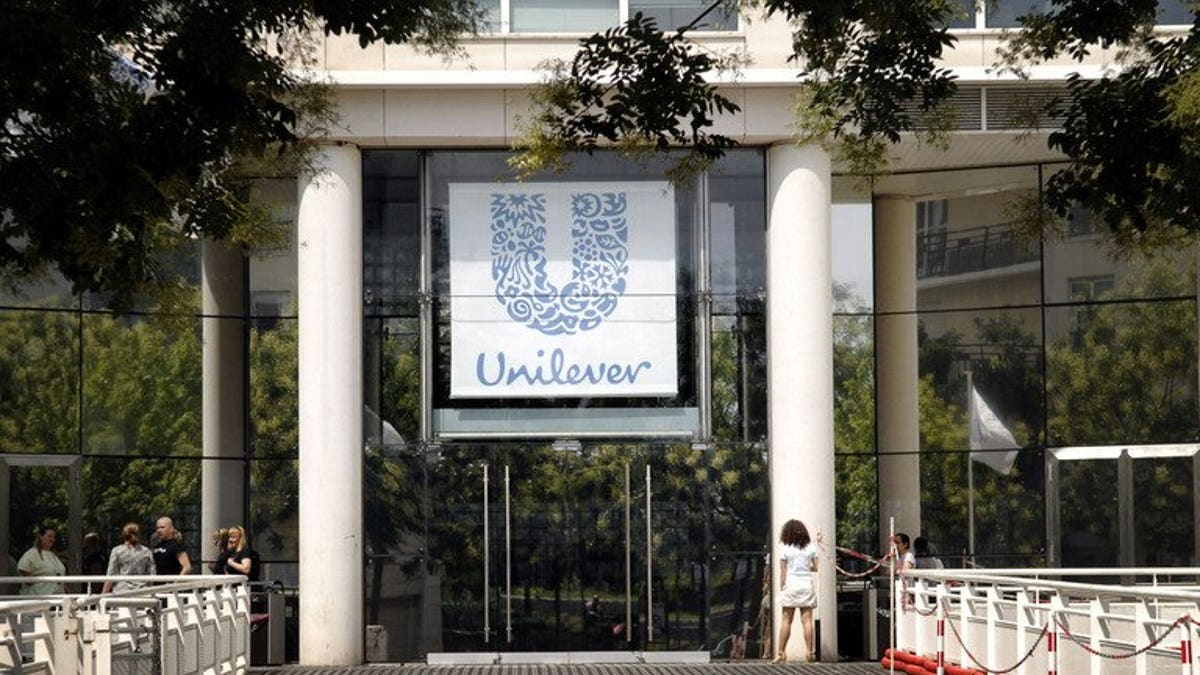
The headquarters of Unilever France in Rueil-Malmaison, outside Paris on August 3, 2007. Anglo-Dutch food and cosmetics giant Unilever said its first-half profits shot up by 14.0 percent to 2.43 billion euros ($3.2 billion), buoyed by strong growth in food products such as tea and ice cream. (AFP/File)
THE HAGUE, South Holland (AFP) – Anglo-Dutch food and cosmetics giant Unilever reported a profit jump on Thursday with the help of sales of tea and ice cream, and emerging markets.
The group said that first-half profits shot up by 14.0 percent to 2.43 billion euros ($3.2 billion), buoyed by strong growth in food products.
The Rotterdam-based group reported a 0.4-percent climb in sales to 25.5 billion euros year-on-year, mainly on the back of growth in emerging markets such as China, Indonesia, Vietnam and Pakistan.
But the group was cautious about the outlook.
"We are delivering more profitable innovations, improving (the) mix and continuing to apply a rigorous approach to supply chain costs and savings," Unilever chief executive Paul Polman said in a statement.
Unilever is one of the world's leading suppliers of consumer goods and owns a variety of brands such as Lipton Yellow Label tea, Magnum ice cream, Knorr, Omo washing powder, Vaseline and Dove.
The group said it has successfully re-launched a new "better tasting" brand of Lipton Yellow Label tea which was showing strong growth in the Middle East and Turkey.
"Ice cream (sales) grew globally, despite poor weather in Europe and the United States, reflecting that we are no longer so dependent on the European summer," Unilever added.
It continued to notch up successes in the sale of Knorr's jelly bouillons, which was extended to a meal-maker range in Russia and with "baking bags doing particularly well in Latin America."
Laundry detergents delivered double-digit growth with the launch of products such as Omo with "wash boosters" in Turkey and Vietnam.
The group's net debt however rose to 11.6 billion euros as opposed to 7.4 billion by the end of last year, mainly as a result of a $3.2 billion payment to raise its stake to 67 percent in its Indian subsidiary Hindustan Unilever Limited (HUL).
HUL is India's biggest consumer-goods company by revenue and has a huge distribution network across the sub-continent of thousands of supermarkets and small retailers, and its sales are watched by analysts as a barometer of Indian consumer demand.
Unilever said however that after adjustments, the actual impact of the HUL transaction would amount to a net debt of 9.9 billion euros.
Despite posting a 10.3-percent growth in emerging market sales, Unilever warned that growth was slowing, "as macro-economic headwinds influence consumer behaviour."
"Within this overall trend we see a mixed picture across the major countries reflecting different local circumstances. Developed markets remain sluggish with little sign of any recovery in North America or Europe," it added.
Group chief executive Polman said: "There is no room for complacency."
"We are well aware that past success is no guarantee of future success."
But he added that Unilever's "innovation pipeline is robust, which will be vital as we navigate the slowdown in many parts of the world."
Unilever employs about 167,000 people in 100 countries.
